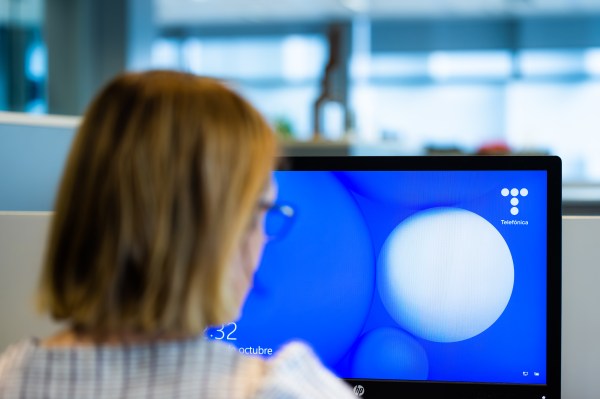Investing in others is rewarding because it benefits us all. The impact economy is a new model that leaves the more traditional paradigms behind, offering new tools to measure and improve its management and transparency. To develop this model, we need to speak the same language so as to promote another way of creating projects.
The health crisis has exposed certain shortfalls in the systems and institutions that set the pace of the society in which we live. It is estimated that the pandemic will condemn more than 250 million people in the world to a cycle of poverty which will be difficult to escape from.
On top of this, a global climate crisis is looming on the horizon, the consequences of which will profoundly affect those on low incomes. This scenario clearly indicates that the traditional economy is not working.
So, should the economy put the financial sector on a par with social and environmental needs or should it be the other way around? In reality, it’s society itself that can promote these needs so they gain more importance.
This current of thought is in tune with the younger generations, who are changing the rules of the game, projecting a new vision of ourselves: more as citizens and not as customers.
In turn, businesses must meet the challenges in a world conditioned by inequalities. The search for solutions is vital in the 21st century characterised by natural disasters and pandemics. It now involves a commitment to the impact economy, a new financial instrument that grew by 60% between 2018 and 2019 in Spain.
The ‘Proposals for Impact Measurement and Management’ report lays the groundwork for a common language and standardisation of social indicators
A new way of investing
The impact economy is a young market that still has plenty of room for development, especially in Spain, where it has only been around for a short time. This model prioritises economic activity that generates a positive impact, and that promotes both the reduction of social differences and taking care of our natural environment.
Thus, those who already invest in social impact projects set an example and are the first to support initiatives that move away from traditional formulas which do not take into account the needs of the most disadvantaged.
For this new model, which measures success in inclusive outcomes rather than in economic data, to reach its full potential, we must generate stable standards that are widely accepted by the multiplicity of organisations that make up the economic and social ecosystem so that we can measure and manage these impacts.
A common language for measuring and managing impact
We know how important data is: it provides essential information which enables us to improve. And in this case the ultimate goal of measurement is to increase the positive social and environmental impact. To do this we must avoid selecting tools that could introduce non-transparent data and practices.
The ecosystem needs to identify methods to assess progress and promote growth and innovation.
Specifically, in order to measure the success of the impact model in a rigorous way, a group of 50 public and private organisations from all sectors, including Telefónica, has prepared a report entitled: Proposals for Impact Measurement and Management, within the Social Impact Chair at the Comillas Pontifical University, in which they have agreed on a common language for measuring and managing social impact.
This discussion group has also identified the constraints and obstacles posed by this management exercise and come up with specific proposals on how to overcome them. It has also gone deeper into the basic concepts that make it possible to build a common language with which to strengthen this ecosystem.
The work carried out in the report on impact measurement and management has also fostered the need to make progress with a common language in social and environmental impact, and what benefits this involves. Thus, this document aims to help entities whose measurement systems are still in their infancy and to establish a solid foundation.
Social Impact Experience
Telefónica has been measuring impact since 2015 and it has wanted to actively participate in the preparation of this report by contributing its accumulated experience in this area, which, for example, has led it to measuring its contribution to the GDP in the main markets in which it operates and its generation of indirect and induced employment, as well as the design of a methodology to measure the amount of CO2 emissions avoided through its different digital and connectivity services for its customers.
The operator has also applied a value assessment model to identify, measure and monetise its real footprint both at product and service level, as a company, from all perspectives: productive, human, social and environmental. It is now working on a new, more comprehensive model to showcase its social and environmental contribution at a critical time when all companies must help achieve a fairer, more resilient and greener recovery.












